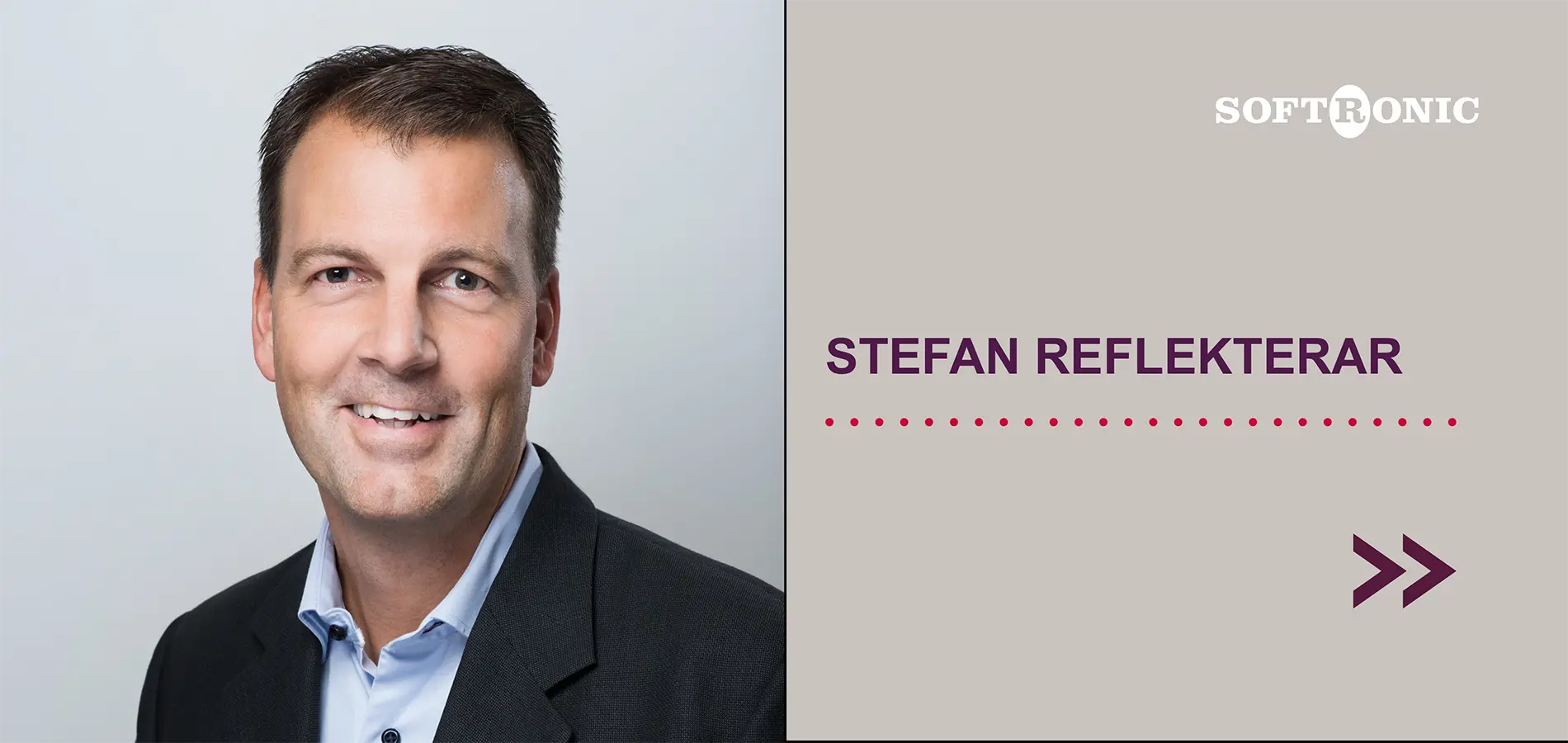
“Who’s driving?” is a classic comment from Goofy. And it can be interesting to think about this from a broader perspective. The relationship that people have with technology is what Stefan Palm is reflecting on in this post. We will leave discussions on whether people have free will for another time.
Historically, it was relatively simple. It was us, the people, who controlled technology and if it started to behave in a way we did not want, we switched it off. But think about your everyday life. Are you the person in control? And can you actually switch everything off?
As a rule, the need to have control over technology has reduced as much of the technology we use has matured. But you do not have to be that old to remember a time when everything was not connected, updates did not install automatically and none of the suppliers’ gadgets could talk to the gadgets of another supplier. The result of the fact that everything ‘just works’ is that there is general ignorance about how things work; this becomes evident when something does not work. (But this is nothing new; it happens all the time in history. How many people today can explain how a toilet works?)
We are also are using more and more technology at work. Most organisations are completely dependent on IT working as it should. This is (unfortunately) not the attitude most organisations take with their IT staff; they only talk to them when something does not work. But there is a story behind how we got into this situation. When technology did not work very well, we had to control technology forcefully; by having to update it and by switching off functionality. Unfortunately this attitude still exists in many IT departments, which is why it is extremely common nowadays for organisations to use services that are not managed by their own IT staff. You can buy services that are ready to go and that ‘simply work’, just like at home!
The attraction of technology
The simplicity of technology is attractive and this could be why not many (enough) people think about the consequences of using new technology and new services. Now and again there are some discussions about data collection, but it seems that most people are prepared to sacrifice their private life (or their company’s information) for an easier life. This is not to say that you cannot combine new technology and respect for a person’s private life. But there is an extremely high number of suppliers who collect data routinely and an extremely high number of people who do not read/understand the terms and conditions they approve when buying new services.
This debate has started to pick up speed (again) surrounding the needs of companies to collect data in order to use machine learning/AI. As a consumer it is extremely convenient to use, for example, Google Home or Siri to give you some help in your daily life and so far (in my opinion), we are the ones in control.
But when you look at the information that was released about the work the company Cambridge Analytica was doing with help from Facebook, you may wonder who is actually ‘driving the car’.
I am sure that most people have experienced or know someone who has experienced the following; you have had a conversation about a topic, and then suddenly posts and adverts about this topic appear in your flow on social media. And it is no wonder that people believe that someone is listening to us. Unfortunately I think the truth behind this is even scarier. In the background someone has been collecting data about you and is performing constant analyses of your behaviour. They also predict what you are going to do, based on what other people like you have done. (Sorry, you are not as unique as you think). So the post you see in your flow appears there because someone has predicted that you will engage with this topic based on the data they have obtained from you (normally voluntarily), not because someone is eavesdropping on your conversations.
In principle it is the same technology that is behind Siri telling you how long it will take you to drive home before you have even left work (you normally leave work at a specific time, of course).
This shows the potential of machine learning/AI to predict people’s needs. It can be used to help a parent plan their day, to try to sell more to the visitors of a website, or communicate a political message. The first sounds wonderful, the second is something we feel is part of our daily lives, and the third (which Cambridge Analytica worked with in 68 countries) is something we will definitely see more of in this year’s US elections.
So as a consumer, I hope that next time you receive a recommendation from a ‘friendly’ service you will think: is this really something I want, or is this something I am doing because this is an expected behaviour that a service has calculated as being best for me?
Remember that machine learning/AI calculates probabilities, so the recommendations that you receive will be the most probable. And what would we as people be like if we lived a life filled with probable events?
It is often the most enjoyable experiences in our life that are the most improbable.
So are you ready to be controlled by technology?
PS. If you would like to hear more about what your data is being used for, you can watch both ‘Snowden’ and ‘the Great Hack’ on Netflix. The Great Hack is about Cambridge Analytica.
PS2. If you would like to put yourself in the driving seat in your life, I would generally recommend https://www.theenergybus.com/
Related links:
Blog post written by Stefan Palm – copyright Softronic.

